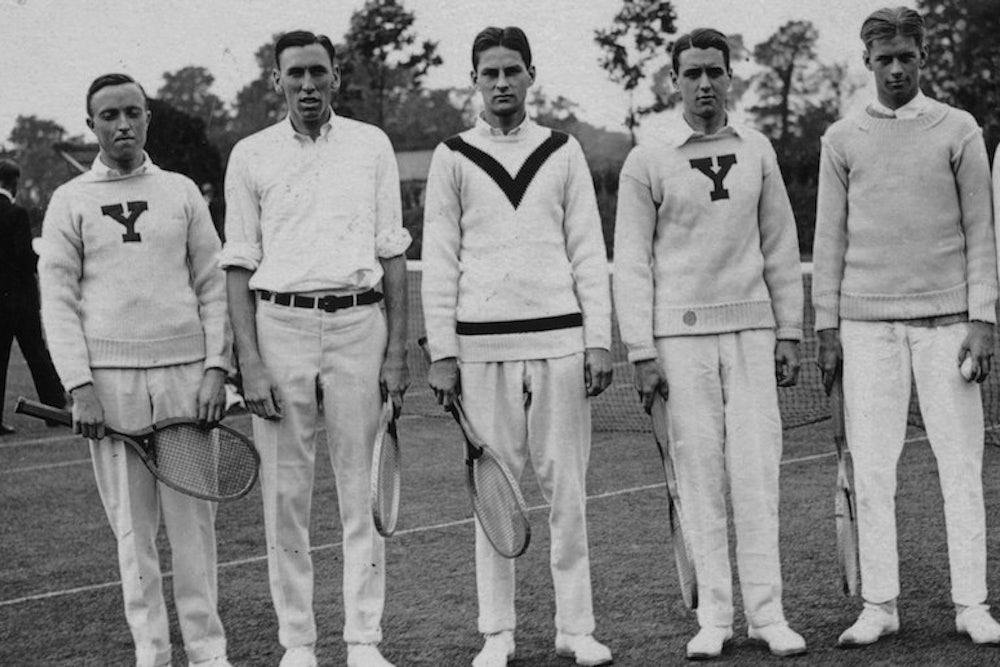William Deresiewicz has thrown a rhetorical Molotov cocktail at the Ivy League in the latest cover story for The New Republic, arguing that America's "system of elite education manufactures young people who are smart and talented and driven, yes, but also anxious, timid, and lost, with little intellectual curiosity and a stunted sense of purpose: trapped in a bubble of privilege, heading meekly in the same direction, great at what they’re doing but with no idea why they’re doing it." The former English professor at Yale (my alma mater) adds, “I should say that this subject is very personal for me. Like so many kids today, I went off to college like a sleepwalker."
As a financial-aid kid whose life-prospects were significantly bolstered by attending an elite school, this subject is very personal for me, too. I come from a family of construction workers and laundry-owners in Brooklyn, the descendants of Italian and Chinese immigrants, respectively. My father is a laborer and my mother a human resources worker; they’ve both changed jobs across the years, owing to the recession and family circumstances. We don’t occupy an enviable financial situation by any means, and I’d hate to think our unsteady progress from working- to middle-class somehow makes me, as Deresiewicz puts it, “an entitled little shit.” He may have sleepwalked into college, but it's wrong to assume we all did.
Enough about me, though. The debate over sending your kids to what are, by most measures, the best schools in America—and perhaps the world—has much more to do with the type of student I represent. Deresiewicz, himself a two- or three-time graduate of Ivy League schools (depending on how you count), projects a totalizing worldview onto anyone who has received or will receive a first-rate education. Indeed, his derivative grouping of elite students into “Super People”—“the stereotypical ultra-high-achieving” peers I was surrounded by in college—is as "out-of-touch" as he claims Ivy Leaguers are.
First, his argument effaces important economic, social, and personal differences among students, conveniently neglecting the fact that elite colleges allow athletes and engineers to sit around the same seminar tables as sons of farmers and daughters of CEOs. Second, his turgid derision of elite schools risks dissuading lower- and middle-class kids like myself from applying to those very same institutions.
Never mind that the admissions process at most schools (and most companies, non-profits, and public-sector areas) is, to some degree, arbitrary. Never mind also that, as Deresiewicz rightly notes, there’s a pervasive culture of “fear, anxiety, and depression” at many of our country’s elite schools. For example, roughly 50 percent of Yale’s undergraduates access the school’s mental health and counseling services at some point—but doesn’t that show we aren’t “Super People,” and not afraid to admit it sometimes?
The more mind-boggling reality is that Deresiewicz has ignored some important numbers and relevant facts: on average, about 50 percent of Ivy League students receive some form of need-based financial aid—at Yale, Harvard, and Princeton, those rates hover closer to 60 percent, given the size of their endowments; an increasing number of students—previously unable to vie for college spots due to geography, lack of information, or a short supply of self-confidence and encouragement—are applying to the most-funded and best-taught schools, in record numbers; incoming freshmen classes reflect a greater proportion of public-school and international applicants, boosting college diversity (at Yale, those groups represented 55 and 12 percent of enrolling freshmen, respectively, in 2013); and studies have linked college attendance, not just in the Ivy League, to positive social mobility, regardless of students’ eventual career paths. Deresiewicz may have reason to cast a critical eye on the growing number of elite students entering consulting or finance upon graduation, but he’s wrong to imply that those individuals are any less freethinking than their non-industry counterparts: both bankers and bohemians can be creative or intellectual. In fact, several of them are some of my closest friends.
My brother—now a rising sophomore studying Chinese in Beijing, on a school-sponsored fellowship—and I could never have afforded a Yale education without the generosity of alumni and donors. Nor could we have gotten there without the backbreaking work and countless sacrifices of our parents, aunts, uncles, and grandparents. Maybe Deresiewicz would include us among the many “exceptions” he discusses—“kids who insist, against all odds, on trying to get a real education,” non-“customers” in the supposed professor-student “nonaggression pact,” kids whose parents aren’t “doctors or bankers.”
Then again, when you have a critical mass of exceptions to an argument, they start to look like holes.
